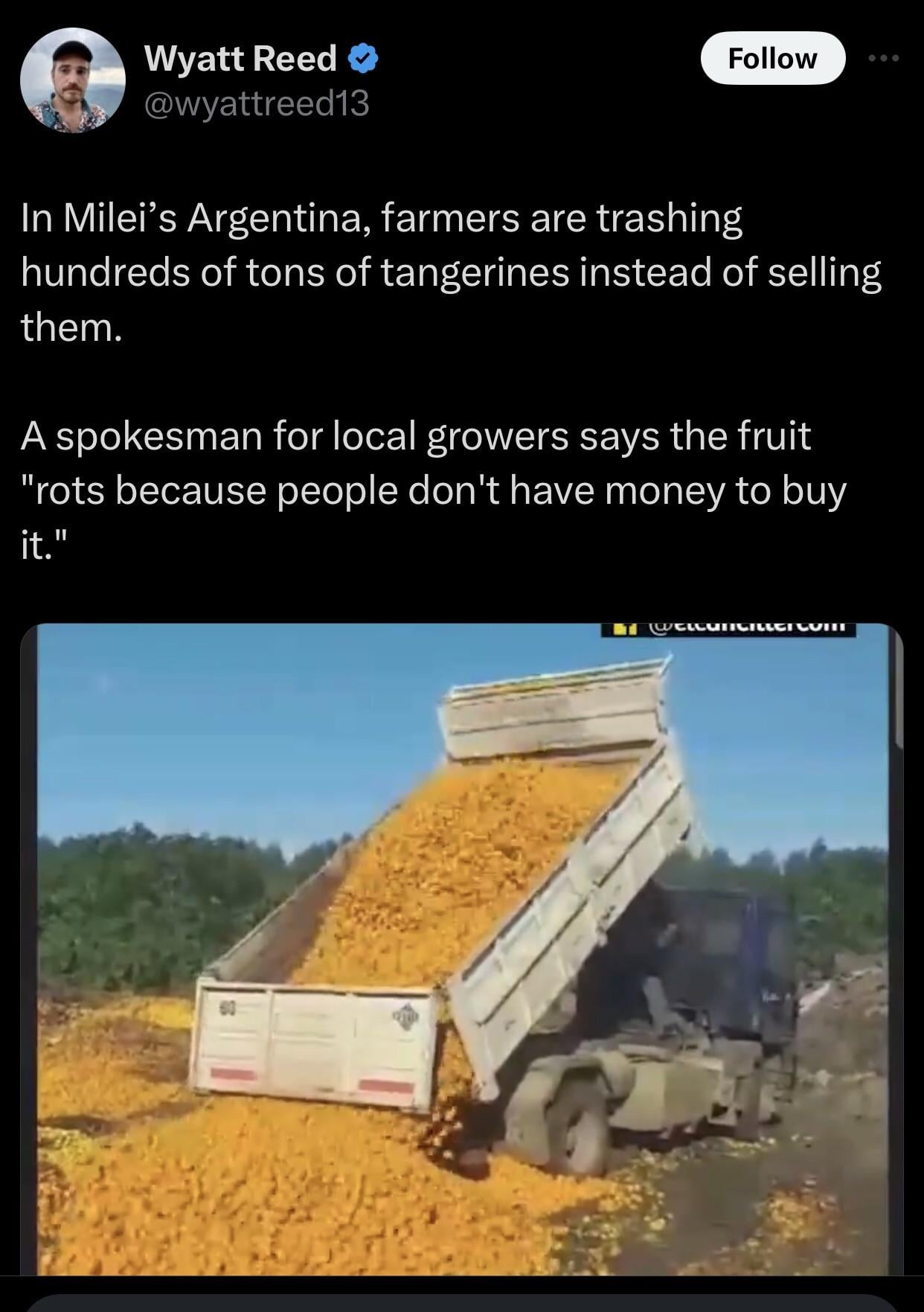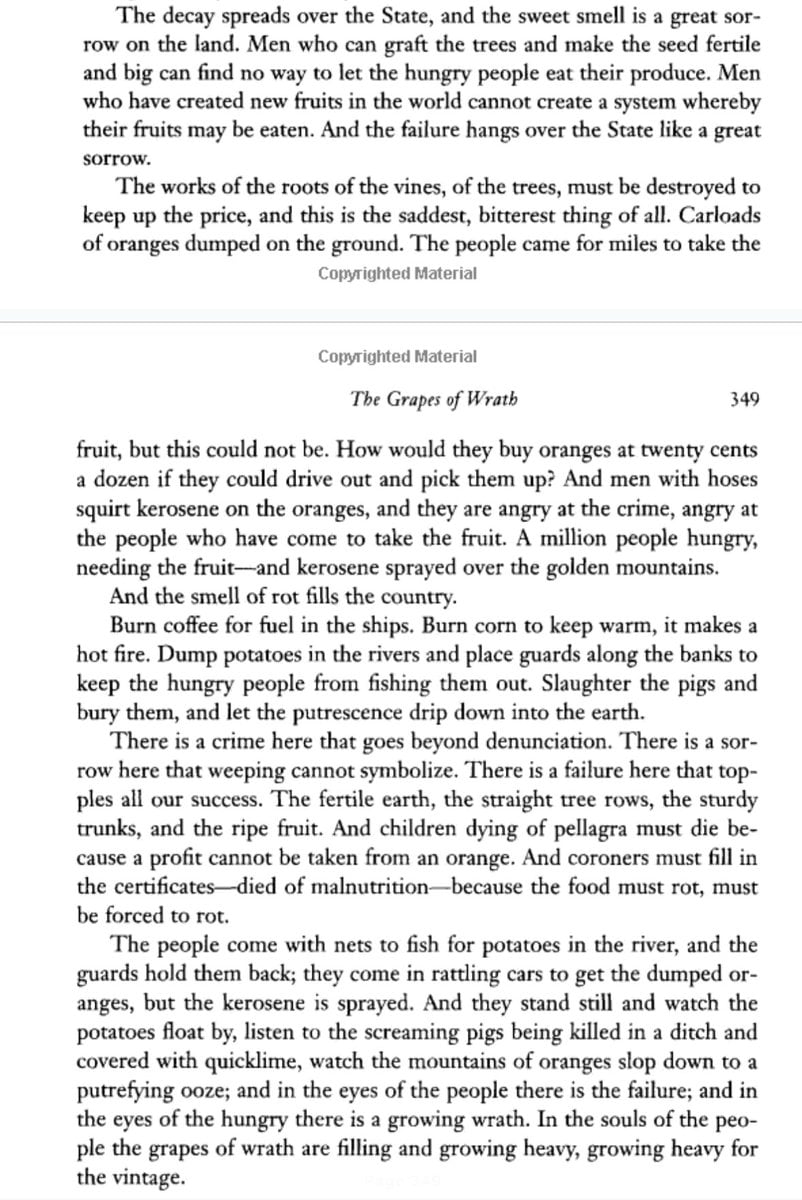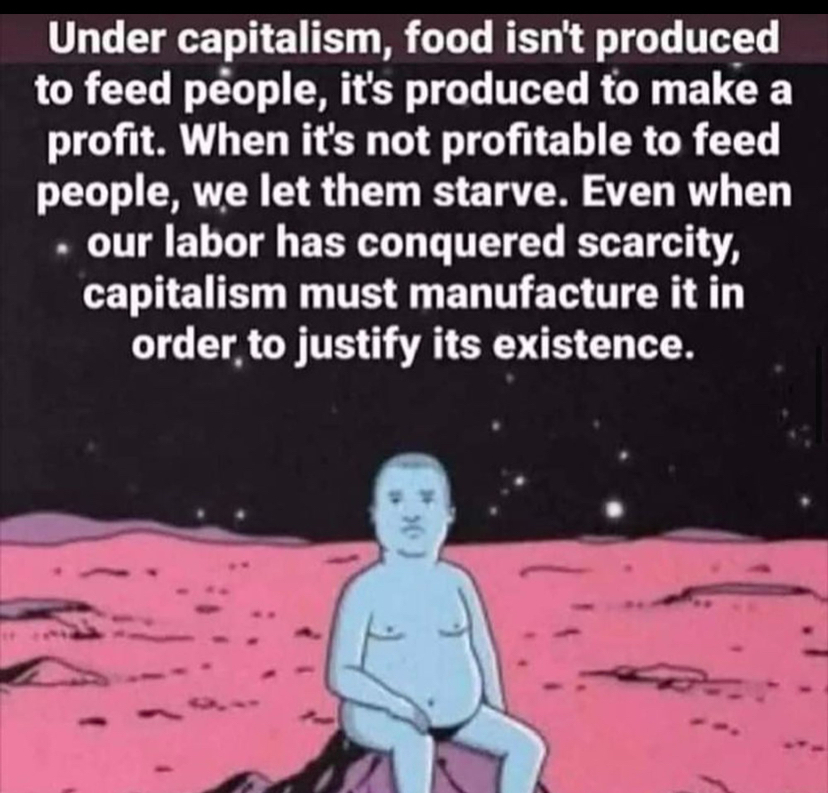Easy there OP, do you think food is some kind of "human right" or something? Before you know it, people will be saying housing is too.
Political Memes
Welcome to politcal memes!
These are our rules:
Be civil
Jokes are okay, but don’t intentionally harass or disturb any member of our community. Sexism, racism and bigotry are not allowed. Good faith argumentation only. No posts discouraging people to vote or shaming people for voting.
No misinformation
Don’t post any intentional misinformation. When asked by mods, provide sources for any claims you make.
Posts should be memes
Random pictures do not qualify as memes. Relevance to politics is required.
No bots, spam or self-promotion
Follow instance rules, ask for your bot to be allowed on this community.
No AI generated content.
Content posted must not be created by AI with the intent to mimic the style of existing images
In 2021, the United Nations General Assembly passed a resolution that everyone has a right to food and the UN should work to eliminate world hunger. It passed 186 for and 2 against. The two countries that disagreed were the United States and Isreal.
Not to defend them, but that only makes them less hypocritical than others. Talk (and UN resolutions) are cheap, and most countries don't guarantee food or shelter in practice. Finland is the only one that comes to mind as actually achieving this.
Edit: perhaps the downvoters would like to prove me wrong by providing their own examples?
Cuba pretty much manages to eliminate hunger and homelessness, as did the USSR and the entire soviet block
I'm sorry if you truly believe that.
I'm sorry you haven't read a single article with reliable numbers and statistics, and rely on bullshit anti-communist propaganda.
Want some sources on that? Go read "Human rights in the soviet union" by Albert Szymanski, it's an extremely well-sourced book with hundreds of references. Please tell me how many homeless people there were in a country that outlawed unemployment and where housing costed to the average family 3-5% of the monthly income. Please tell me how there could be hungry people in the USSR when the agricultural output of contemporary Russia still hasn't reached the levels of Soviet Russia, and food prices were maintained basically constant since 1940 to 1980.
Hmm, that's weird, why would you specifically pick 1940 as your starting date? I wonder if anything incredibly bad happened in the 30s?
Genius, the USSR was a preindustrial society before the 40s, there were quite literally no tractors on the fields, and the former Russian Empire that they had just barely left behind had 10 famines a century. Before the advent of industrialization of agriculture, pesticides, fertilizers and tractors, humans would go through easily 3 famines throughout their lives, more so in hard to farm areas like the fucking cold Russia. You quite literally can't eliminate famine until you industrialize, but once they did, they eliminated hunger everywhere they had influence... while imperial England kept murdering Indians of hunger by the millions by not industrializing their country (like Soviets did in Central Asia)
And at what cost? 30 years after the regime was changed, these countries are still significantly behind those who were capitalist in pretty much every single aspect.
You are correct that homelessness way tackled but hunger not at all. Take a look at Romania during Soviet era...
So whilst one problem was solved, many, many new arose. We didn't have oranges (and other foreign goods) , considering our wages, everything was super expensive and personal growth was pretty much impossible - unless you became a member of the communist party, of course.
30 years after the regime was changed, these countries are still significantly behind those who were capitalist
How is that the fault of communism? The fact that half of Eastern-European countries have barely grown since the 90s is precisely the fault of capitalism at failing to raise the living standards and economies of those countries at rates similar to what communism achieved, except possibly in Poland and Czech Republic which have received capital investment in industry (ofc not high tech because that would compete against Germany) and grow at the expense of other countries through unequal exchange by relying on the import of cheap agricultural produce and raw materials.
I don't know much of Romania, but how can you blame communism for the fail of the last 30 years of capitalism?
There is a very logical progression of basic human needs. Without oxygen, a human will die in less than an hour. We need clean breathable air. Without water, a human a will die in less than a month. We need clean drinkable water. Without food a human will die in less than a year. Shelter is trickier because people can die of exposure and hypothermia in a matter of hours, but may be able to survive without it.
- Air for profit
- Water for profit <- This exists
- Food for profit <- We are here
- Shelter for profit
Minor correction: You're technically right, but you will die in less than a week without water and less than a month without food.
During the Great Depression the federal government literally paid farmers to not harvest crops because allowing that much food to be produced would dilute the market and bring down crop prices.
During the Great Depression.
A time when people were starving and there were virtually no forms of welfare.
When millions were thrust into poverty for reasons entirely out of their control.
The federal government paid farmers to create less food to protect profit margins.
Farmers have bills to pay, too. If the price of growing food doesn't cover the cost to make it they'll go out of business. Then there will be one less farm to grow food. If there's no farms and we're totally reliant on imports, that's a strategic weakness.
It's the same reason we prop up carmakers when they go out of business: Manufacturing capacity is a strategic asset just like farmland.
Then subsidize the farmers by the amount you were paying them to not harvest the food ? They don’t make any money when they aren’t selling it at all either, without this intervention…
Which leads to even cheaper food prices and even more subsidies, and then you have a planned economy.
Oh wait.
Nowadays they largely pay for the food and give it to to people. We got gallons of eggs at one point from that.

The reasons behind it are quite simple:
- Food spoils very quickly, so mostly if you don't consume it locally you need to quickly export which is quite expensive. Very often it's simply cheaper to utilize it for example as fertilizer.
- Storing food is costly.
- The best option would be not to produce an excess of food but 1) demand is hard to predict 2) crops output is hard to predict 3) for legal reasons like contractual obligations it's better to produce more than less.
- Current markets are hardly free: see https://www.history.com/news/government-cheese-dairy-farmers-reagan
In today's world every person who starves, who does without, who suffers unnecessarily..
Does so only because someone wants it so . Not because there is not enough

I seriously encourage everyone to read this book, even if you read it back in school and found it boring. It's incredibly topical to this day.
I also just read In Dubious Battle for the first time and recommend it. A great illustration on why it's so hard to get together and organize when it seems like it should be easy.
It was rather radicalizing finding out that the world makes three times as many calories per person than is necessary to feed every person on this planet, but because we're idiots living in a class society in the year 12024 HE, luxury restaurants regularly dump slightly subprime ingredients in the trash while thousands starve.
Does this statistic include calories fed to livestock or not?
This specifically talks about food.
According to health.com, the average person needs between 1600 to 3000 kilocalories a day depending on sex and age.
According to Our World In Data, even Africa, the continent with the least food reserves, has enough to give everyone roughly 2500 kcal, which ought to be more or less enough given how people with higher and lower caloric needs balance out. Seeing as how developed countries have more than enough, if a portion of that went to Africa and Asia, everyone could eat.
Calories are a rough measure, and according to Bahadur et al. we are overproducing grains but underproducing fruits, but the wretched of the Earth and the prisoners of starvation are not even getting that grain.
Edit: I have been informed that "calories" in nutrition are in fact "large-C calories", A.K.A. kilocalories. On the other hand, the OWiD numbers, which document the number of kcal available per day, still suggest that we have enough to feed everyone. I have altered the comment accordingly.
Small nitpick: When we talk about calories in food we actually mean kcal
Existence is pain.

Schopenhauer was right even before the internet came :-)
That goes beyond capitalism. People are just selfish. The hoarding of wealth was a thing way before capitalism. I think the left sort of shoots itself in the foot by obsessing over capitalism and ignoring the much deeper cause of a lot of societal ills. Being evil is part of human nature, just as much as being benevolent is.
Not really.
There have been extensive sociological studies over this. Condition in a capitalist society and the promotion of the “homo economicus” model continually reinforces “greediness” and leads to people in capitalist societies being far “greedier” on average.
It isn’t a natural thing, it is conditioned. Obviously everyone is greedy to an extent. But in anthropological examinations of different forms of societies, altruism scored far higher than greediness in non-capitalistic societies.
Kate Raworth, Oxford Economist, wrote an excellent chapter about this in her book called “doughnut economics”. The chapter is “Nurture Human Nature”.
The view that all humans are greedy and rational was promoted by Adam Smith and John Stuart Mill and is the precursing foundation of capitalism. But modern economics have rejected this view as it has been proven to be inaccurate, and increasingly rely on theoretical models built within behavioural economics.

Yeah I don't think talking about food production and distribution is a good method to promote socialism given how many people starved in socialist countries.
Seems to me this would be a subject socialists would want to avoid.
Critical of capitalism ≠ Socialist
There’s a lot of nuance you’re missing out on in this simplistic statement.
I obviously oppose any authoritarian regime regardless of the economic system.
The post doesn't mention socialism at all.
